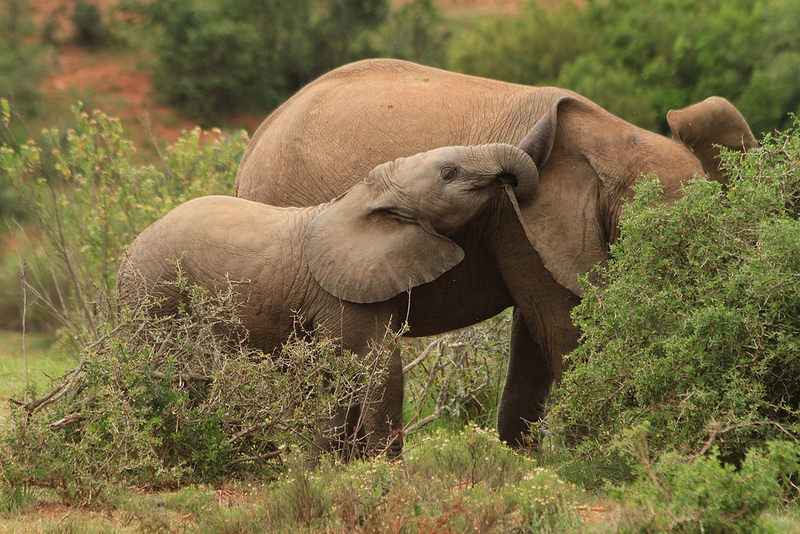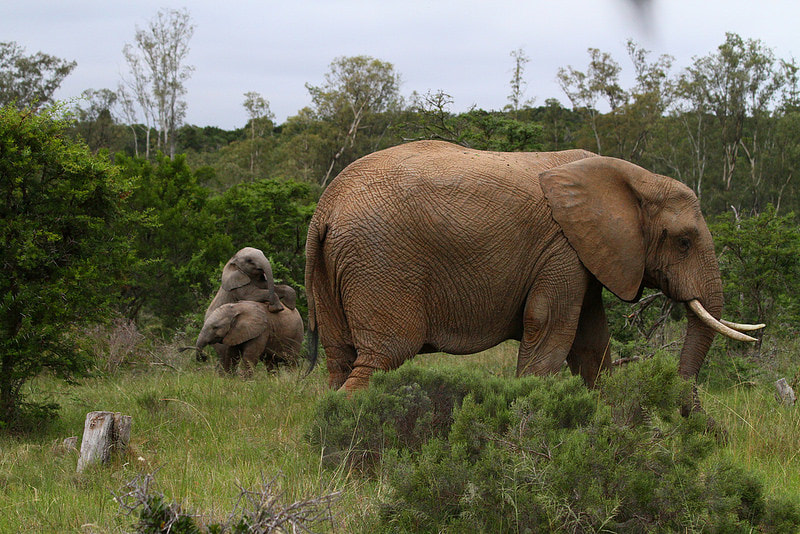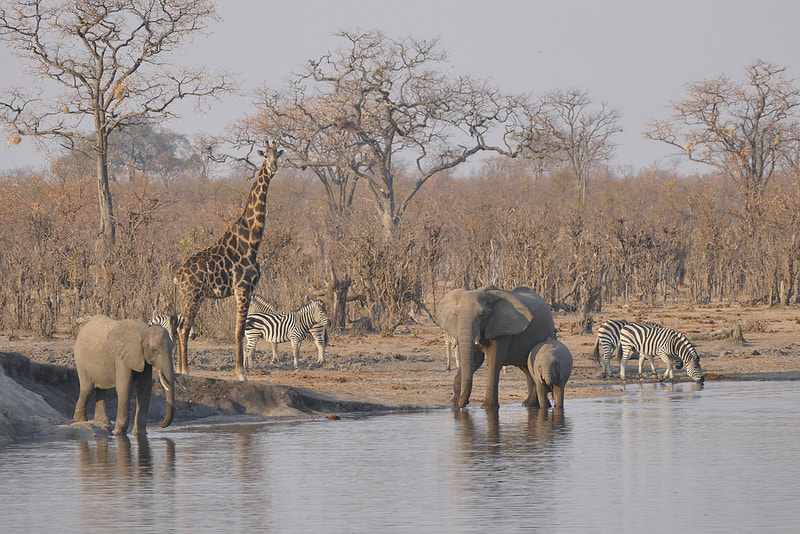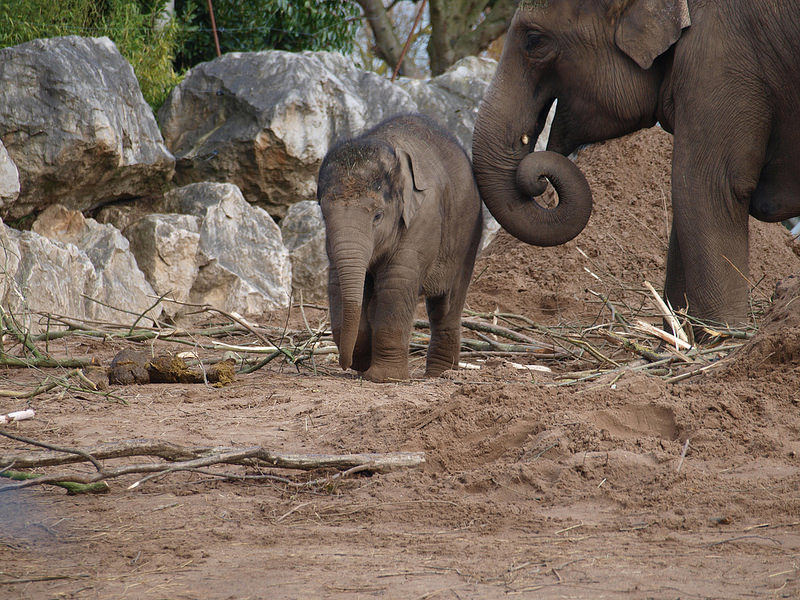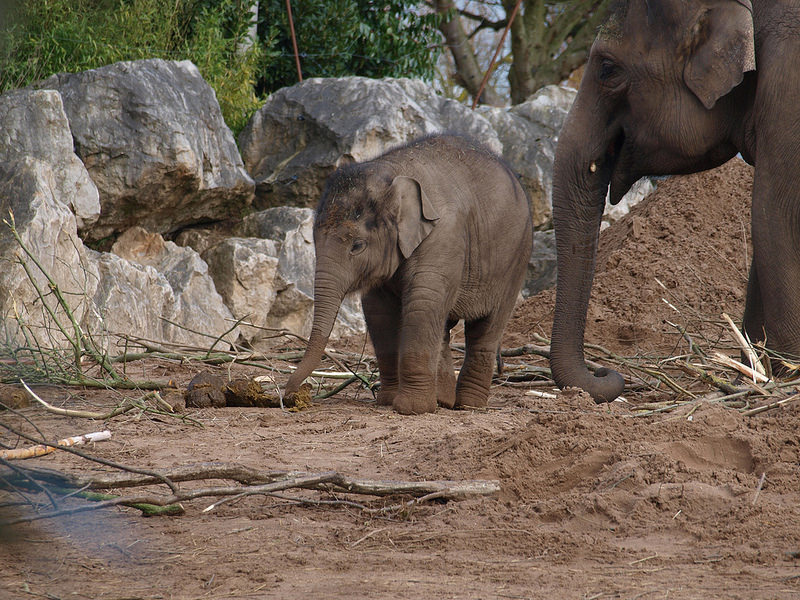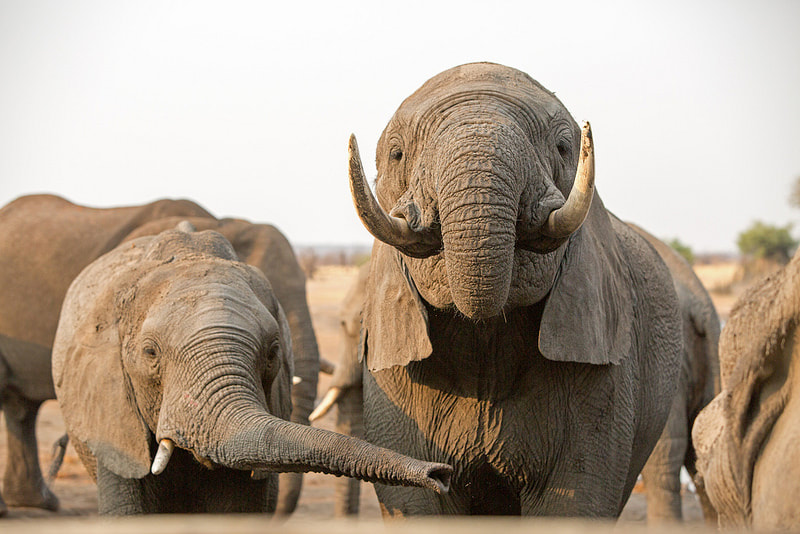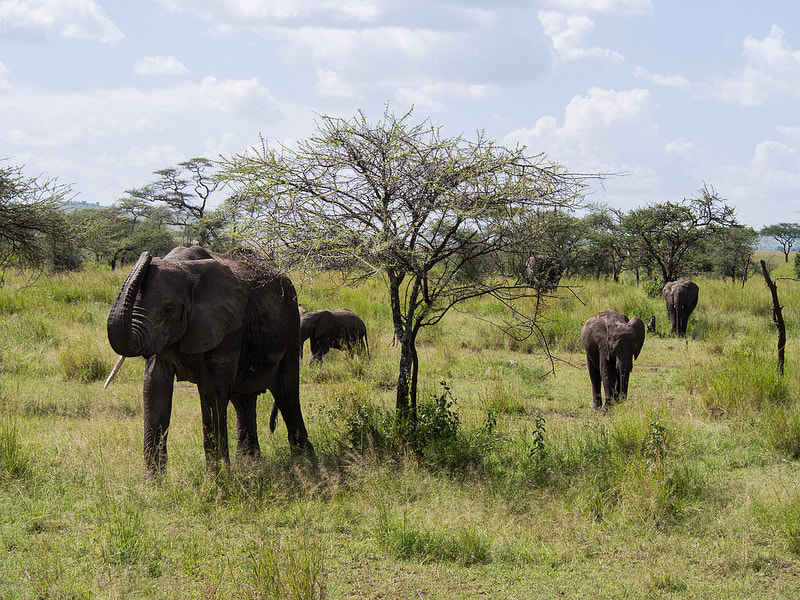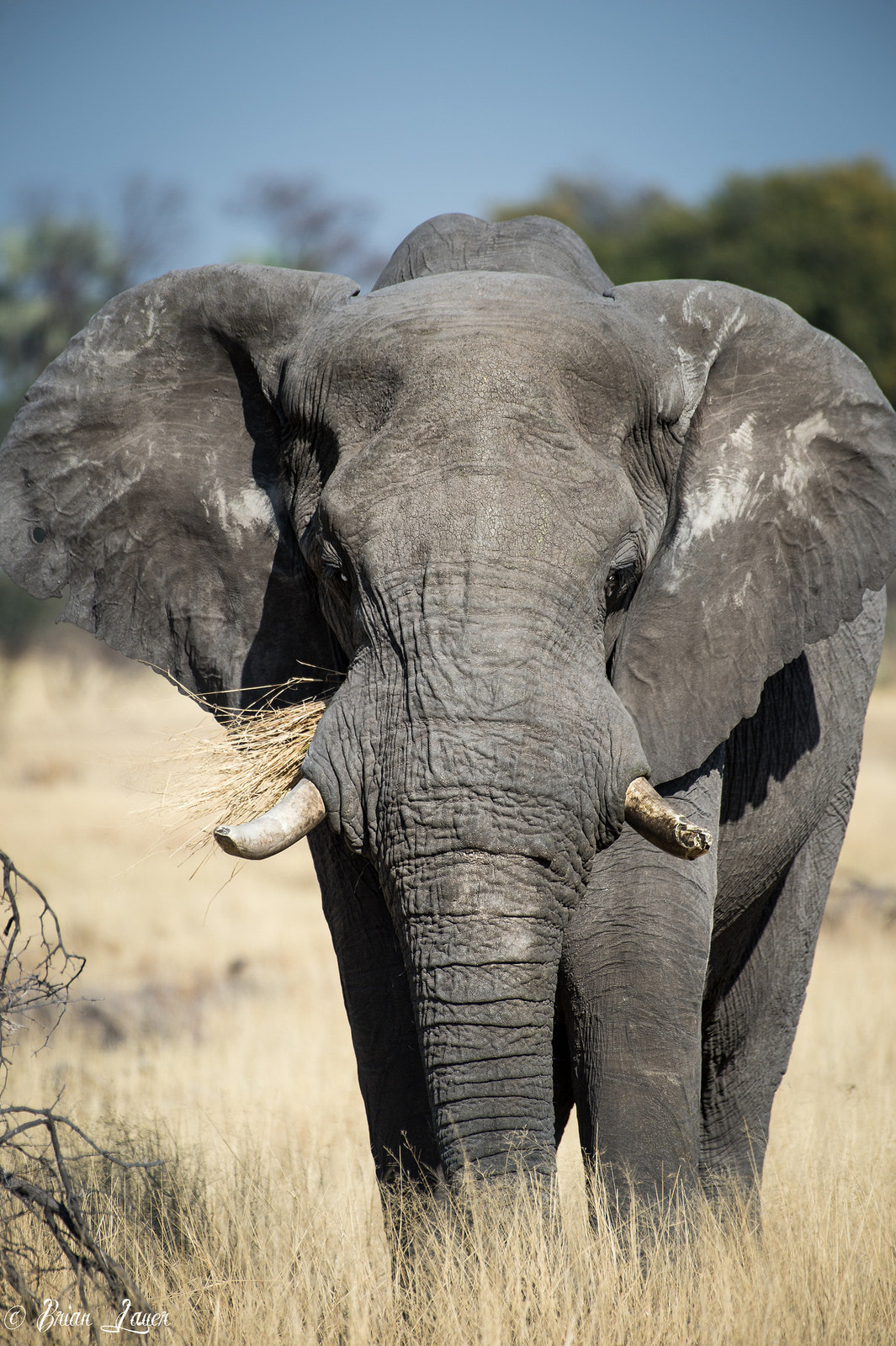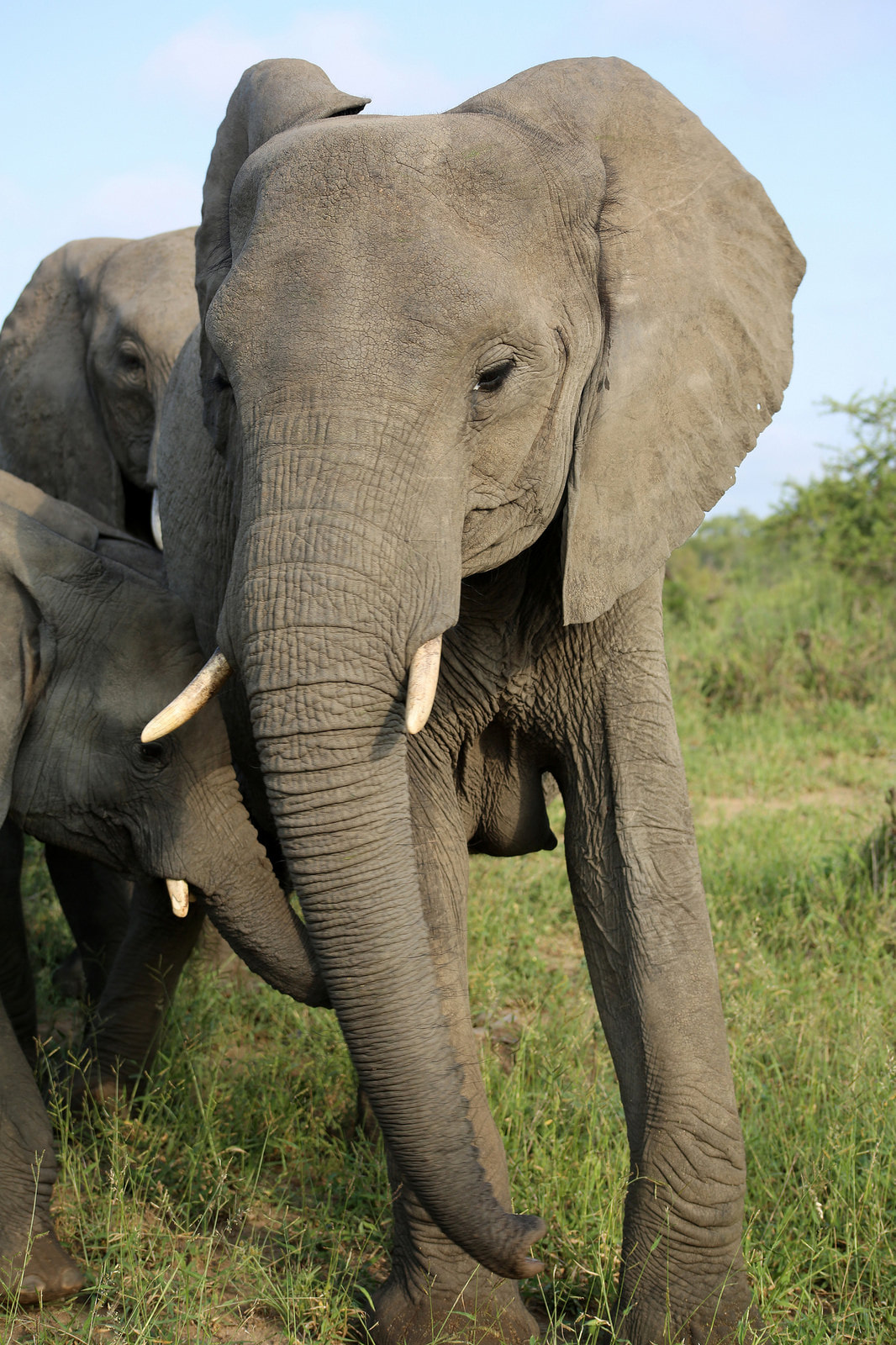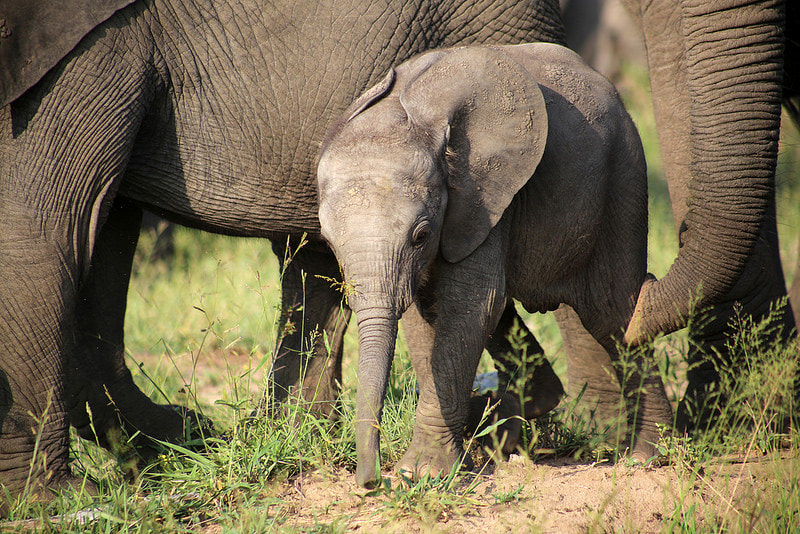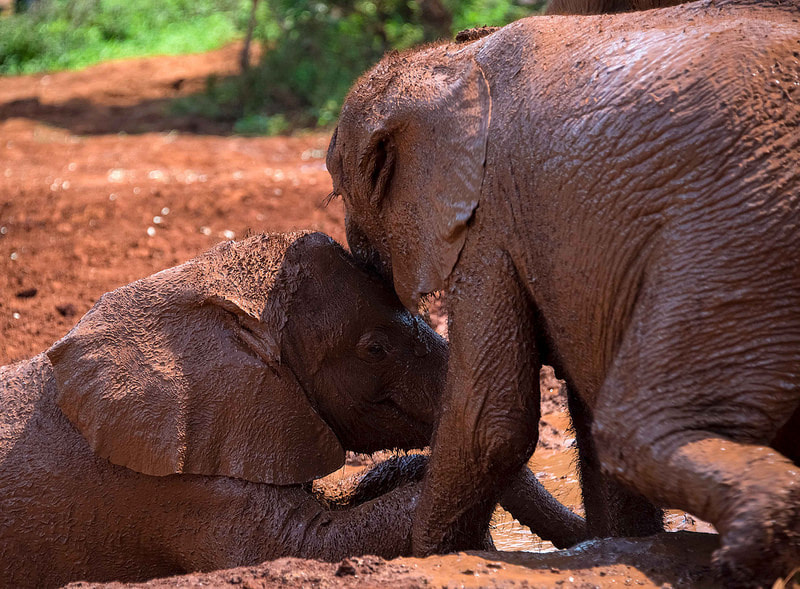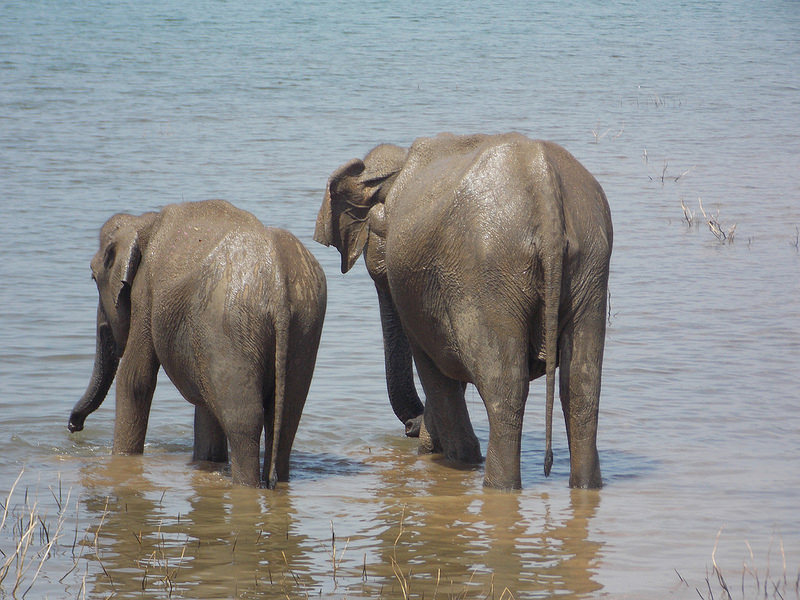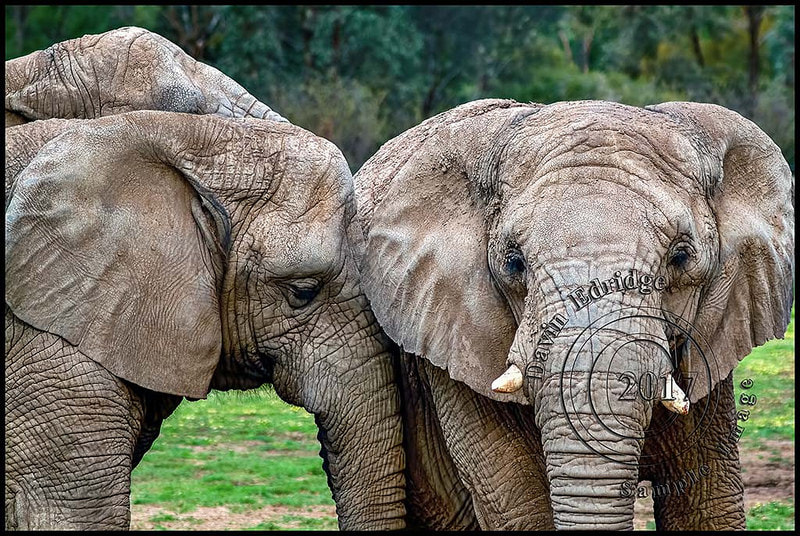The Salvation of Elephants
practicing a planetary ethic
for deeply sentient beings
|
Sadness and Beauty
We live in a beautiful but brutal world. There is no need to go through the litanies of sadness: poverty, environmental destruction, war and the threat of nuclear war, political repression, economic inequities, disease both physical and mental, and, for too many, a sense of despair and meaninglessness. And yet, strangely, amid it all, there is also tremendous beauty: the poignancy of love and forgiveness, the courage of human beings to withstand and survive, the splendor of the more-than-human world (elephants, for example), the joy of music, the tenderness of the senses, the sheer joy of being alive, moment by moment. Sadness and Beauty: that's the story. The Greater Hope Not only from the sadness but also from the beauty, and perhaps also from a divine spark within the soul, a hope emerges. The world is, or can be, a community of communities of communities, says John Cobb in Ten Ideas that Can Save the Planet. In such a world people will enjoy their local communities, with no one left behind, but also have a sense of a wider ethic aimed toward the flourishing of life on our small but beautiful planet. The Earth Charter calls it "respect and care for the community of life." Amid this respect participants in the greater hope may well sense that they dwell within a still larger context: a creative and evolving universe in which they are small but included in what Mary Evelyn Tucker and others call The Journey of the Universe. The economist David Korten speaks of this broadened, cosmologically sensitive story as a new story, building upon creative work in science in a spiritually sensitive way, and argues that this is the most important story of our time, if we want to meet the challenges we face. Open Horizon (process) thinkers agree. We process thinkers have had some very good ideas -- twenty of them, I believe -- but we've lacked a story. John Cobb speaks to this in John Cobb on David Korten. Polydoxy Truth be told, we need many stories today, not just one. The Journey story, if effective, must be tweaked in countless directions, or supplemented by countless alternatives, or both. This we learn from Whitney Bauman (see below) among others. He speaks of the importance of polydoxy: that is, the exploring and welcoming of many different perspectives, none absolute but many available. Still, the multiple stories need to be good for the planet if they are relevant to our time. The question is: which stories can truly help us live with respect and care? Which can help us build communities that are creative, compassionate, participatory, and free. People, Animals, and the Earth The question is also: Whose communities do we have in mind? One liability of well-meaning advocates of social justice is that they -- we -- too often neglect other animals in our visions of just communities. This is why Jane Goodall's prayer, offered in this website, is so important. Her prayer reminds us to keep three things in mind as we seek a better world: people, animals, and the earth. We might speak of this as a holy trinity of earth concern. The better hope is that we make our way into beloved communities with this trinity in our minds and hearts, and that we do so by means of two kinds of action: deconstructive critique of the worst aspects of modern, industrial civilizations and positive social action. And what is to be deconstsructed? In The Postmodern John Cobb: Constructive and Deconstructive John Cobb proposes that there are eight overlapping candidates for critique:
A Planetary Ethic Amid the deconstruction and construction, we can wonder what such a deconstructive and constsructive ethic looks like in practical terms. In Religion and Ecology: Developing a Planetary Ethic Whitney Bauman speaks of it as a planetary ethic. Such an ethic is not universal in the worst of senses. It does not smother the world in a single universal value imposed upon all by fiat. It does not claim to come from a single source of divine revelation incumbent upon all. It can include but does not require belief in a divine spark. It does not speak of "one religion" or "one way" or "our way" or "my way." It rests in a quiet yet creative cloud of un-knowing, taking delight in the many ways of being alive that are found on our planet. And in the beauty of the elements, too! Still, a planetary ethic is situated in something lie love. It responds situationally and responsibly to each new situation, for the sake of life. It is inwardly free and, to use Bauman's language, "nomadic." Such an ethic offers love to all beings, not humans alone. The documentary Love and Bananas, the trailer for which you find above, shows what it looks like as practiced. In the last analysis, it is the practice that counts. (Jay McDaniel) |
Review of Love and Bananas
by Frederic and Mary Ann Brussat of Spirituality and Practice
reposted from Spirituality and Practice Website, 5/2/2018
Love & Bananas: An Elephant Story is opening in theaters throughout the spring and summer. To find a screening near you, visit the official site. Information is also available on how you can host a screening.
Elephants have been revered in Southeast Asia for centuries. They also have served as beasts of burden for the logging and construction industries. Others work for trekking companies, providing rides for tourists. Habitat loss means that few Asian elephants live in the wild. There are only 45,000 of these intelligent, social, and sensitive beings alive today. And most of them live in harsh conditions and suffer a lifetime of abuse.
Baby elephants are taken from their herd and subjected to a cruel process called the "crush box" designed to replace their memories of their mother's' love with fear of humans. Restrained so they cannot move, they are beaten and deprived of food and water. And just in case these elephants forget that they have been transformed from wild creatures into tame slaves, bullhooks are used regularly to control their behavior. In Cambodia and Thailand, they provide rides and perform in shows for tourists, who often remain oblivious to their poor living conditions; they are usually chained in small quarters and given no opportunity to interact with other elephants. (See 10 Reasons Why You Should Take Elephant Rides Off Your Bucket List.)
Love & Bananas: An Elephant Story is an extraordinary documentary about a handful of people who have set out to rescue as many abused and exhausted Asian elephants as they can. First-time director Ashley Bell does a great job introducing us to Lek Chailert who has spent 20 years on a loving and compassionate mission to provide a sanctuary for these noble creatures where they are free, happy, and allowed to live as elephants are supposed to live – wandering around, playing in water, and in the company of a herd. No wonder Lek was named one of Time Magazine's Heroes for Asia for her work in conservation in 2005 and the Ford Foundation's "Hero of the Planet" in 2001!
The dramatic and emotional core of this documentary is when Lek prepares a path towards liberation for Noi Na, a 70-year-old, partially blind trekking elephant whose owner is willing to release her to live at Lek's sanctuary. But this involves transporting the elephant by truck 480 miles across Thailand. Watching this footage is quite nerve wracking as Lek's team worries about Noi Na's nervousness and the dangers of dehydration and collapse. Everyone celebrates when they successfully reach the sanctuary and Noi Na is greeted by the other elephant residents. The joy continues as she walks free out into the open spaces and wades in a mud pond.
Love & Bananas : An Elephant Story touched our hearts, and it will move you as well. We need more freedom fighters like these Ashley Bell and Lek Chailert who are willing to do whatever it takes to advance the cause of elephant rights and well-being. If you'd like to help, visit the "Take Action" section of the film's website.
Elephants have been revered in Southeast Asia for centuries. They also have served as beasts of burden for the logging and construction industries. Others work for trekking companies, providing rides for tourists. Habitat loss means that few Asian elephants live in the wild. There are only 45,000 of these intelligent, social, and sensitive beings alive today. And most of them live in harsh conditions and suffer a lifetime of abuse.
Baby elephants are taken from their herd and subjected to a cruel process called the "crush box" designed to replace their memories of their mother's' love with fear of humans. Restrained so they cannot move, they are beaten and deprived of food and water. And just in case these elephants forget that they have been transformed from wild creatures into tame slaves, bullhooks are used regularly to control their behavior. In Cambodia and Thailand, they provide rides and perform in shows for tourists, who often remain oblivious to their poor living conditions; they are usually chained in small quarters and given no opportunity to interact with other elephants. (See 10 Reasons Why You Should Take Elephant Rides Off Your Bucket List.)
Love & Bananas: An Elephant Story is an extraordinary documentary about a handful of people who have set out to rescue as many abused and exhausted Asian elephants as they can. First-time director Ashley Bell does a great job introducing us to Lek Chailert who has spent 20 years on a loving and compassionate mission to provide a sanctuary for these noble creatures where they are free, happy, and allowed to live as elephants are supposed to live – wandering around, playing in water, and in the company of a herd. No wonder Lek was named one of Time Magazine's Heroes for Asia for her work in conservation in 2005 and the Ford Foundation's "Hero of the Planet" in 2001!
The dramatic and emotional core of this documentary is when Lek prepares a path towards liberation for Noi Na, a 70-year-old, partially blind trekking elephant whose owner is willing to release her to live at Lek's sanctuary. But this involves transporting the elephant by truck 480 miles across Thailand. Watching this footage is quite nerve wracking as Lek's team worries about Noi Na's nervousness and the dangers of dehydration and collapse. Everyone celebrates when they successfully reach the sanctuary and Noi Na is greeted by the other elephant residents. The joy continues as she walks free out into the open spaces and wades in a mud pond.
Love & Bananas : An Elephant Story touched our hearts, and it will move you as well. We need more freedom fighters like these Ashley Bell and Lek Chailert who are willing to do whatever it takes to advance the cause of elephant rights and well-being. If you'd like to help, visit the "Take Action" section of the film's website.
